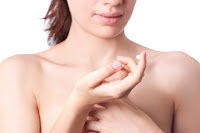Healthcare doesn’t simply mean medical treatment for conditions affecting organs, blood or tissue; healthcare also means caring for what’s outside.
When we think of skin it’s easy to forget that the skin is one of the largest organs in the body, weighing over 6 lbs and functioning to control temperature, offer protection from viruses and acts as a sixth sense to detect the weather and your surroundings.
Sometimes skin problems, such as eczema or psoriasis, do not require a visit to a dermatologist and will clear up on their own or can be treated with home-use dermatology creams from the pharmacy.
Skin is also often a reflection of what’s happening inside your body and is one of the first symptoms of a problem. Dermatologists can not only advice on how to clean up your skin and renew a healthy glow, but they may also point out an underlying health problem.
To prevent damage to the skin, dermatologists recommend :
Stay hydrated
To keep skin healthy and hydrated make sure you drink at least 1.5 liters of water (8 glasses) a day. Don’t be tempted to get your water intake from soft drinks, tea and coffee because caffeine dehydrates you. Fruit juices are a good way to keep your fluid intake up but beware of excess sugar and the hidden calories in fruit juices.
Eat a healthy diet and be active
Exercise and a diet rich in anti-oxidant vegetables, fruits and plenty of protein will improve your overall health which in turn is good for your skin. Cutting back on saturated fats and replacing them with healthy oils will improve the appearance of your skin almost overnight.
Don’t smoke or drink to excess
Smoking causes wrinkles, dehydrates the skin and can lead to a number of serious health problems. After you quit smoking you will see an improvement in the color and texture of your skin within weeks. Alcohol in limited amounts is not bad for your skin, however drinking more than the recommended limit can affect the appearance of your skin. Remember to always follow every alcoholic drink with a glass of water to ensure your body does not dehydrate.
Cleanse, tone, moisturize
Clean skin will prevent blemishes. Every day, clean your face thoroughly using circular motions to improve the circulation of the skin as you cleanse it. To keep skin supple and hydrated from the outside in, especially on the face and neck, make sure to use a moisturizer that is suitable for your skin type.
dermat
When we think of skin it’s easy to forget that the skin is one of the largest organs in the body, weighing over 6 lbs and functioning to control temperature, offer protection from viruses and acts as a sixth sense to detect the weather and your surroundings.
Sometimes skin problems, such as eczema or psoriasis, do not require a visit to a dermatologist and will clear up on their own or can be treated with home-use dermatology creams from the pharmacy.
Skin is also often a reflection of what’s happening inside your body and is one of the first symptoms of a problem. Dermatologists can not only advice on how to clean up your skin and renew a healthy glow, but they may also point out an underlying health problem.
To prevent damage to the skin, dermatologists recommend :
Stay hydrated
To keep skin healthy and hydrated make sure you drink at least 1.5 liters of water (8 glasses) a day. Don’t be tempted to get your water intake from soft drinks, tea and coffee because caffeine dehydrates you. Fruit juices are a good way to keep your fluid intake up but beware of excess sugar and the hidden calories in fruit juices.
Eat a healthy diet and be active
Exercise and a diet rich in anti-oxidant vegetables, fruits and plenty of protein will improve your overall health which in turn is good for your skin. Cutting back on saturated fats and replacing them with healthy oils will improve the appearance of your skin almost overnight.
Don’t smoke or drink to excess
Smoking causes wrinkles, dehydrates the skin and can lead to a number of serious health problems. After you quit smoking you will see an improvement in the color and texture of your skin within weeks. Alcohol in limited amounts is not bad for your skin, however drinking more than the recommended limit can affect the appearance of your skin. Remember to always follow every alcoholic drink with a glass of water to ensure your body does not dehydrate.
Cleanse, tone, moisturize
Clean skin will prevent blemishes. Every day, clean your face thoroughly using circular motions to improve the circulation of the skin as you cleanse it. To keep skin supple and hydrated from the outside in, especially on the face and neck, make sure to use a moisturizer that is suitable for your skin type.
dermat



No comments:
Post a Comment